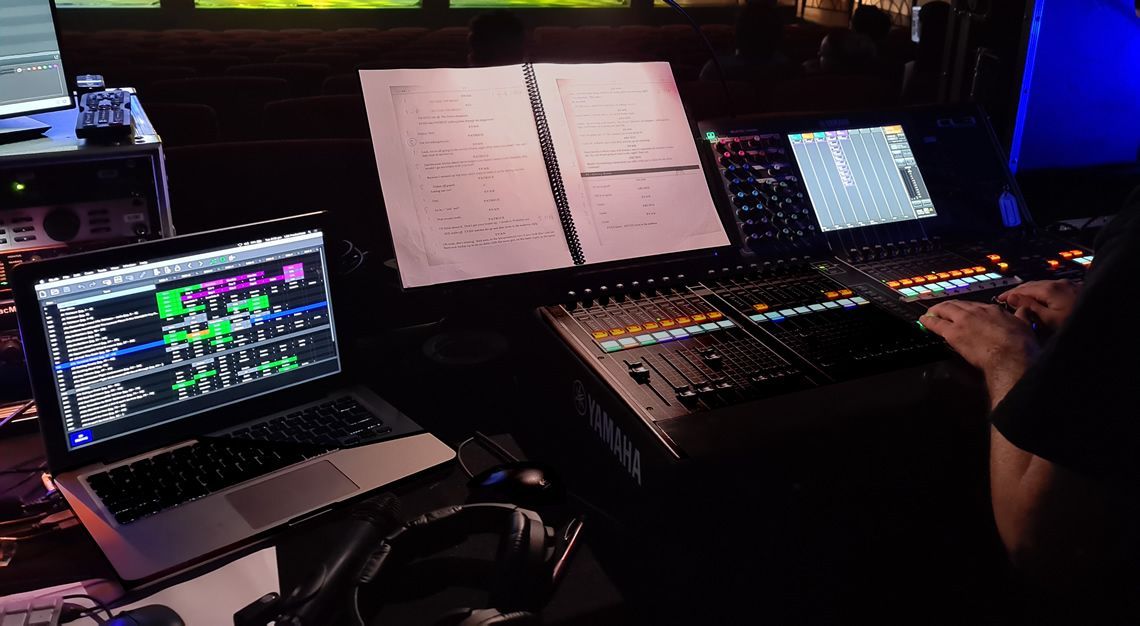The Power of Conversational AI in Technical Theatre and Live Events Production
How to Elevate Your Productions with Conversational AI
In the realm of technical theatre and live events, professionals strive to enhance efficiency, creativity, and seamless communication. With the rapid advancements in technology, the integration of Conversational AI has emerged as a valuable tool for achieving these goals. In this blog post, we will explore the most effective applications of Conversational AI for individuals working in the technical theatre and live events industries. Discover how this innovative technology can revolutionize communication, problem-solving, and audience engagement.
1. Instant Technical Support:
Technical glitches and unforeseen challenges are common in the theatre and live events industries. Conversational AI enables professionals to access instant technical support through interactive conversations. Whether it involves troubleshooting lighting systems, addressing audio issues, or resolving equipment malfunctions, Conversational AI can provide quick suggestions, step-by-step guidance, and relevant resources to expedite issue resolution.
2. Interactive Script Development:
Script creation and refinement play a vital role in theatrical productions and live events. Conversational AI serves as a valuable companion for scriptwriters and directors, enabling interactive conversations to brainstorm ideas, explore character development, and receive instant feedback on dialogues. Its contextual understanding and ability to generate coherent responses facilitate a seamless creative process.
3. Personalized Audience Engagement:
Creating a personalized and engaging experience for the audience is crucial for the success of live events. Conversational AI can be integrated into event applications or websites, allowing attendees to interact and access customized information. From providing event schedules and answering frequently asked questions to offering personalized recommendations based on attendee preferences, Conversational AI enhances engagement and enriches the overall audience experience.
4. Streamlined Event Planning:
Effective event planning requires meticulous coordination among various teams and stakeholders. Conversational AI acts as a virtual assistant, simplifying the planning process by answering inquiries, assisting with scheduling, and suggesting suitable vendors or equipment based on specific requirements. Its ability to learn and adapt to user preferences over time streamlines event logistics and enhances efficiency.
5. Real-time Language Translation:
In a globalized world, language barriers can pose communication challenges during technical theatre productions or international live events. Conversational AI's language translation capabilities bridge this gap by facilitating real-time translation of conversations between different languages. This feature fosters seamless communication and collaboration among international teams, ensuring a smoother workflow and reducing miscommunication.
Conclusion:
As technological advancements continue to shape the technical theatre and live events industries, Conversational AI emerges as a powerful tool for enhancing communication, problem-solving, and audience engagement. Its applications in providing instant technical support, facilitating interactive script development, enabling personalized audience interactions, streamlining event planning, and bridging language barriers demonstrate its immense value to professionals in these fields. By harnessing the power of Conversational AI, individuals working in technical theatre and live events can unlock new levels of efficiency, creativity, and audience satisfaction, ultimately elevating the quality of their productions and events.
As always, feel free to
book a meeting with us to get started or get answers along the way!







